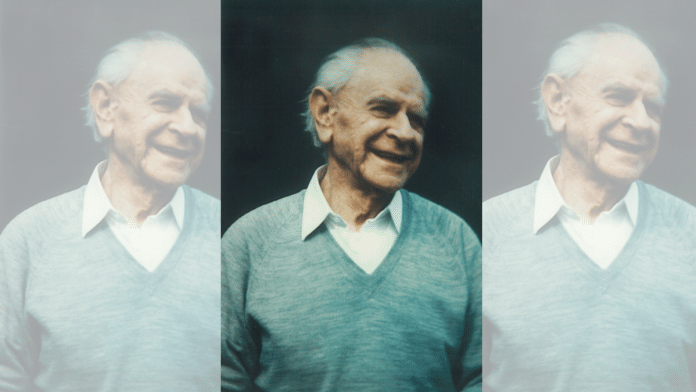Thank you dear subscribers, we are overwhelmed with your response.
Your Turn is a unique section from ThePrint featuring points of view from its subscribers. If you are a subscriber, have a point of view, please send it to us. If not, do subscribe here: https://theprint.in/subscribe/
“The Open Society and its Enemies” by Karl Popper, written in political exile during the Second World War and first published in 1945, is one of the most influential books of the twentieth century. Hailed by Bertrand Russell as a ‘vigorous and profound defence of democracy’, over decades, Popper’s work influenced governance, economy, political philosophy and the dynamic of societies influenced by organizations promoting democratic ideals as perceived by each.
Governance and democracy
According to the World Bank’s document on “Governance and Development” (1992) governance is considered a process by which the legitimized power is exercised for the utilization of resources of a country for development. Most recognized form of legitimized governance is democracy. Bryce says, “Democracy is that form of government in which the ruling of a state is legally vested, not in any particular class or classes, but in the members of the community as a whole” (Bryce 1929) democracy has swept across the globe to become the dominant form of governance. Trusted, transparent and accessible democratic institutions at national, regional and local levels are paramount for creating democratically secure societies. Democracy and governance reinforce each other and are essential for preventing conflicts, promoting stability, managing crises, facilitating economic and social progress, and creating conditions conducive to sustainable respect for human rights and the rule of law. Democracy cannot be imposed from the outside: it must be embraced by the domestic political leadership and the electorate and supported and protected by fully functioning democratic institutions.
Democracy is difficult in a large and diverse polity such as India where religion is often seen interfering with governance and government interference in religion. Here, society has a major role in ensuring that democracy is not consistently hijacked for political benefits and power.
Politics in Indian democracy
In political science parlance, the term “partisanship” is used to describe the stable and emotional attachment that some voters feel toward political parties. This emotional attachment, which transcends mere support for the party at the ballot, is prevalent among voters in most parts of the world and affects political discourse and behavior in fundamental ways. In India the political depositions are a study in contradictions. While all parties “promote” secularism, none practice it. This is proving an impediment for progress and development.
Here is a brief on all important political parties in India and their voter bases (in brackets): BJP (religion), Shiv sena (religion, dynasty), INC (Muslims(religion)), dynasty), Muslim Leagues(religion), Akali (religion), SP (clan, dynasty), BSP (Dalits), DMK, AIDMK (Dravidian Identity, parochial.), – JD(U), YSR Congress, TMC, Biju JD, are all parochial. AAP is a relatively new party and the Left as an ideology is almost extinct in India. Only a couple of parties from these have a national identity, so essential to grow, develop and be counted in the elite Nations of the world.
Modern Indian society: Tolerance and intolerance
Religious principles cannot be imposed on secular democratic governance. Real democracy is where there is only one set of laws and rules for all its citizens, within which religions have to exist in homogenous societies. Respect, acceptance and tolerance have to work in all directions and are not one way traffic. Poper’s critique of religions extended to dogmatism like in monotheism which demanded unquestioning faith or suppressed dissent. He believed that the rigid adherence to any singular “truth” stifled intellectual progress and open debate, key elements of an open societys. He believed for religious belief to coexist with an open society, it must allow for criticism and pluralism. As a corollary, we can surmise, a religion which is dogmatic can’t survive in a democracy and an open society.
In regard to tolerance, Poper says “If we extend unlimited tolerance even to those who are intolerant (monotheism), if we are not prepared to defend a tolerant society against the onslaught of the intolerant, then the tolerant will be destroyed, and tolerance with them”. But we should claim the right to suppress them if necessary even by force; for it may easily turn out that they are not prepared to meet us on the level of rational argument, but begin by denouncing all argument; they may forbid their followers to listen to rational argument, because it is deceptive, and teach them to answer arguments by the use of their fists or pistols.” Tolerance is not only exchange of greetings on festive days. It is a multidirectional prospect.
Tailpiece: To sustain democracy in India, the religious leaders along with prominent citizens of the civil society should come together onto one platform and repeatedly declare unanimously that all religions serve same purpose and methods of worship of all religions equally lead to the God worshipped.
These pieces are being published as they have been received – they have not been edited/fact-checked by ThePrint.


